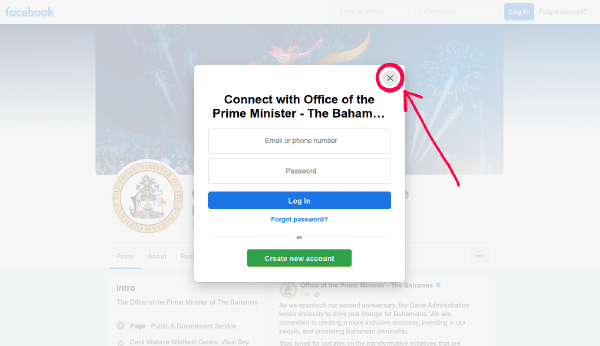I caught a glimpse of an interesting thing by chance.
Meta Platforms
Facebook hid the x from their login prompt on
public pages–including government pages, then brought it back. ‘Twas on the
desktop before mobile and perhaps (who knows) for a subset (as a test). A “login
only public page” is for a near–distant future, set. Seriously though;
developer documentation will become my
final excuse to visit Facebook.

x factor
Index: Cache · Source
